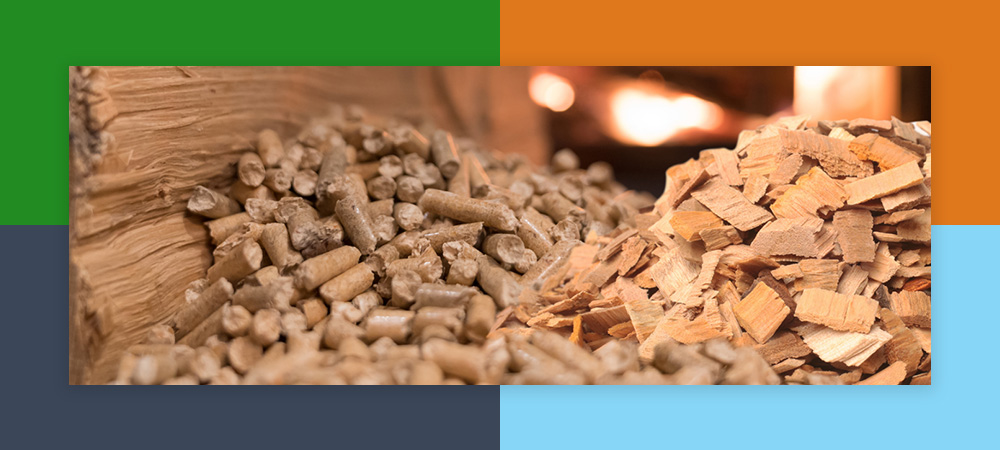From electric cars to wind turbines, many environmentally friendly technologies have appeared in the last few decades to improve our energy use. Renewable energy only comprised about 12% of energy consumption in the United States in 2021. Fortunately, homeowners and businesses now have more eco-friendly options than ever. Making the switch can help you do your part for the planet, save money and potentially gain independence from the grid.
What Is Green Heating?
“Green heating” doesn't have a single definition, but it usually refers to a heating technology that doesn't emit fossil carbon dioxide (CO2) or other harmful gasses and particles into the air. Sunshine can provide ample heat in some locations, but can’t be relied upon in cold locations with standard buildings. Unique homes, sometimes called Passive Houses, can be insulated well enough to use waste heat, solar, and other renewable sources to stay warm in cold climates. However, these homes are not commonplace.
Green heating may also refer to a heater's efficiency — little to no wasted energy can indicate cleaner heating. Many elements of the heating process can contribute to the environmental impact of heating technology, from how the fuel source is collected to what byproducts it creates when it burns.
With so many variables, finding the right green heater can be challenging. You'll need to consider aspects like your access to the fuel source, local infrastructure and the technology used.
Some aspects to consider when evaluating a clean heating method include
Greenhouse Gas Emissions
When fossil fuels burn, they release compounds like carbon dioxide (CO2), methane (CH4) and nitrous oxide (N2O). These gasses contribute heavily to rising temperatures and affect global climate and weather patterns.
Particulate Emissions
Particle pollution comes from the release of tiny particles of solids and liquids, like dust, dirt, soot and smoke. You can see some of these, but others are too small for the naked eye. Too much particle pollution can cause a wide range of health problems, like eye, lung and throat irritation and even some types of cancer, depending on the type of particle. Clean heating systems aim to minimize these harmful emissions. As well, good combustion yields particles with far lower toxicity.
Fuel Source
Many people switch to electric heating equipment such as heat pumps, feeling that it's more eco-friendly. However, if your electricity comes from the grid, the benefits depend entirely on the electricity provider. If the electric company uses non-renewable sources, it contributes to carbon emissions and pollution. Understanding how your fuel gets generated is crucial to making it eco-friendly.
Energy Transportation and Processing
Fuel often goes through many steps to reach its end use. Take oil, for instance. It must go from the mine to the refinery to the gas or electric company to your building, using additional fuel to power the equipment and vehicles. Most electric power plants are less efficient (20% or more) than heating plants, not to mention the line losses of about 5% as power travels through the grid. Other fuel sources, like on-site solar power or locally sourced wood, can minimize transportation and processing requirements and the associated environmental effects.
Efficiency
Some heating systems waste much of the energy they produce,either through the heater itself or heat loss from a poorly insulated building. A low-efficiency heater wastes more energy than a high-efficiency heater.
Types of Green Heating
Green heaters primarily rely on biomass, electricity or perhaps in the future, hydrogen fuel sources. Biomass refers to organic materials from plants and animals, such as wood, animal fats and manure. Heating systems that use these renewable resources offer more sustainability. With the right equipment and sourcing practices, green heaters also address challenges related to emissions and fuel handling.
Each system works differently, and the user must always consider the fuel's lifecycle for a truly green heating method. Here are some common green heating methods:
Electric and Solar Heating
An electric heater itself is 100% energy-efficient, but the system's overall efficiency depends on how the electricity is produced. Since most electric companies generate electricity from coal, gas or oil, this method may not be as eco-friendly as it initially seems. As noted above, low efficiency and grid losses are also problematic.
You can get clean solar heating if you generate on-site solar power. However, these systems can be prohibitively expensive, and solar power may not be reliable as a source of heat energy, depending on your environment. Still, solar heating can complement another heating method nicely, reducing strain on the other heater.
Biomass Heating
Biomass heaters and boilers usually use wood fuel, including logs (cordwood), pellets and chips. Biomass is an affordable, readily available and sustainable fuel source when procured from responsibly managed forests. Locally sourced wood allows biomass heating to support the economy and limit the waste associated with transporting fuel over long distances. It also works well in off-grid locations and offers steadier pricing than oil or gas.
While older models released unwanted emissions, today's high-efficiency wood boilers are viable eco-friendly solutions. Look for a wood boiler with certifications from the Environmental Protection Agency (EPA). You may even qualify for a tax credit or rebate with one of these models.
You can choose from the following boilers to heat a business or home:
Wood boilers: An indoor wood boiler uses whole pieces of dry firewood and is stored inside the building.
Wood chip boilers: These larger, commercial/industrial boilers offer excellent efficiency and use wood chips collected and processed to specific international standards. Wood chips offer automation at a lower cost than wood pellets.
Pellet boilers: A pellet boiler uses wood pellets made primarily from waste material. Since they're refined, they have low ash and moisture contents to help reduce particle emissions. Wood pellets allow for a high degree of automation, less expensive equipment, but cost more than wood chips.
Another way to boost the efficiency of a biomass boiler is to use one with thermal storage. Thermal storage systems can help limit on/off cycling and smoldering. More efficient operation also reduces creosote and acidic condensate buildup inside the boiler. By reducing these materials, the boiler can work more efficiently with lower maintenance costs and will last longer.
Heat Pumps
A heat pump doesn't generate heat. Instead, it moves it from one place to another just like a reverse refrigerator.. For example, a heat pump could draw heat from the ground during winter, increase its temperature and use it to heat the air or water in a building. Heat pumps can source heat from the air or the ground.
Although more cost effective than gas boilers, heat pumps use electricity and excel in well insulated spaces. Older buildings or those with poor insulation can make heat pump systems less than ideal, and the equipment can be expensive to install. Heat pump technology has made gains enabling use in colder temperatures with higher efficiency.
Benefits of Biomass Clean Heating
Many types of clean heating are still in development or only work in certain climates. They can also be expensive and hard to find. Biomass, however, has been around for decades. Today's eco-friendly models have solved many problems associated with older wood-burning technology, allowing users to take advantage of:
- Lower costs due to a stable, affordable fuel source
- Fewer carbon dioxide emissions than fossil fuel heaters
- Long-lasting equipment
- An easy-to-use system
- Increased independence from the energy grid
- Renewable heat at any time of day, during any weather, for any type of building
- Low reliance on the reliability of the electric grid
The right type of boiler is essential for reaping these benefits. Work with a trusted dealer who can help you find the best system for your home or business.
Get Started With Green Heating With Tarm Biomass
Biomass is among the most affordable and accessible types of green heating available, especially in areas like New England, where the forests are plentiful. You'll need a high-efficiency boiler approved by the EPA for clean heating. Fortunately, we carry a wide range of wood heating technologies, including commercial and residential boilers. We also offer thermal storage tanks to maximize the efficiency and convenience of your heater.
Ready to see if biomass heating is for you? Reach out today to chat with us!




